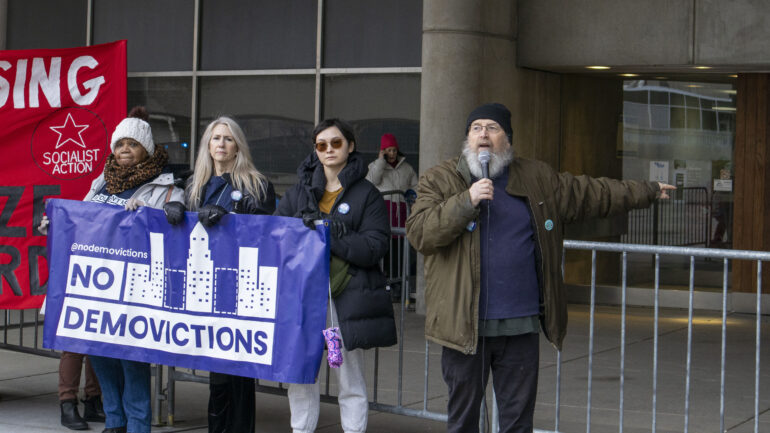Toronto tenants have won a significant battle toward better housing policies.
A motion was passed Friday in City Hall to include secondary market housing in rent gap payments. Secondary rental units are housing units that were built to own and were later put on the rental market.
Examples of these are rented basement units, condominium apartments and single-family homes.
The approval of the motion means that tenants should expect their compensation packages to better reflect current rental pricing.
This is because advocates such as Megan Kee, a No Demovictions member, noticed data in rental gap calculation was flawed due to the specific information being left out.
“[Use] secondary market data because of secondary market condos. Obviously, those rent rates are higher,” she said.
Kee said the current plan still has flaws as not all tenants qualify for rent gap compensation, and many can’t afford to pay out of pocket.
“They’re having to make difficult decisions about where they’re spending their money. So they’re not at risk of homelessness,” she said.

No Demovictions members holding a banner while and Gaetan Heroux from 230 Fightback protests tenants rights in front of Toronto City Hall on April 2. Photo credit: Jeferson Quiros-Vargas
Kee said many are choosing between paying rent or purchasing food and other necessities.
No Demovictions is a young tenant association that started in February last year and has organized various rallies.
On Monday, April 2, they held a protest at City Hall demanding better protection and highlighting the need for the motion to be passed.
Organizers say while they may have won the motion, their problems don’t end at City Hall.
It has been made clear by tenants that demovictions can take a toll on their mental health.
Annette Trevorrow, a tenant at 25 St. Mary St., fears being evicted.
“I thought that I’d never be afraid of anything again, having beaten cancer and (been in) several motor vehicle accidents,” she said.
Trevorrow said developers aren’t taking into consideration the mental health of tenants when wanting to mitigate damages.
“Having a roof over your head means you can sleep at night,” she said.
Trevorrow also told us about a fellow tenant who is 93 years old and asking for medical assistance in dying rather than moving.
Last year, Humber News spoke with Patricia Johnston, an organizer with the association and at risk of demoviction.
This year, she updated the situation with a short sentence.
“I think they’re waiting for us to give up, but we’re not going to,” she said.
Johnston said she doesn’t know what to do except to remove the people who are failing tenants.
“How can they make a decision when they don’t know what it’s like to not be able to go home and not worry about the next meal or are we going to have a roof over our head?” she asked.
Johnston is a senior citizen, and while she acknowledges that she doesn’t have it easy, she said talking to other seniors in her building breaks her heart about how scared they are.
“I barely make ends meet and I’m one of the lucky ones,” she said.
No Demovictions plans to keep working with city councillors and demanding all levels of government to advocate for renters.

